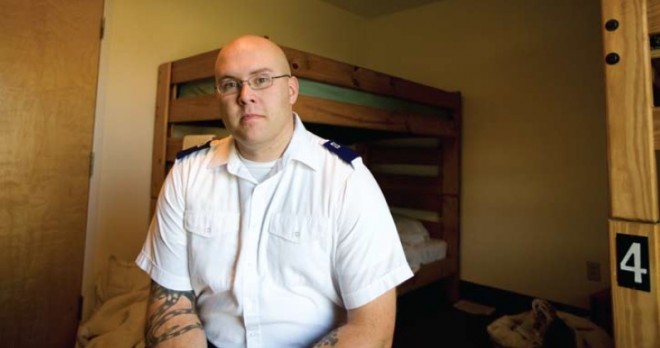The Salvation Army began in 1865 when English clergyman William Booth decided to take his message of God’s redemptive love for everyone, including the most wretched, from his London church into the streets where it would reach the ears of the poor, the homeless, the hungry and the destitute. Booth intended to encourage the needy to join regular churches, but he found that they were not welcome in the church pews of his day.
So Booth set up his own evangelical church organization. He organized it along military lines, viewing it as an “army” of “soldiers” and “officers” volunteering to fight – non-violently – for God’s kingdom. According to the Salvation Army website, these volunteers must exemplify “a disciplined and compassionate life of high moral standards, which includes abstinence from alcohol and tobacco.” Functioning like other churches, the Salvation Army provided the site and the minister for the simple June 21, 2007, wedding of CJP students Thaddeus Hicks and Marie- José Tayah in Harrisonburg, Virginia.
Now working in 111 countries, the Salvation Army’s traditional areas of focus are: safe, clean shelters for anyone in need; day care centers for street children, the elderly and others; job-training centers; addiction treatment programs; free food for the hungry; assistance in emergencies or natural disasters; health-care centers; and thrift shops that train workers and raise money for the Army’s charitable work.
The Salvation Army recently decided to move beyond alleviating neediness. In July 2007, the Army set up a unit to prevent such neediness by addressing “the social, economic and political issues and events giving rise to the perpetuation of social injustice in the world.” Called the International Social Justice Commission and based in New York City, this unit is mandated to “assist the Army in addressing social injustice in a systematic, measured, proactive and Christian manner, consistent with the purposes for which God raised up the Salvation Army.”
This initiative by the Salvation Army complements the training that Thaddeus and Marie-José are receiving at the Center for Justice and Peacebuilding, where all the professors stress understanding the roots of social ills and intractable conflicts.
From the story: From Cop to Servant: Paying Penance to the Needy
